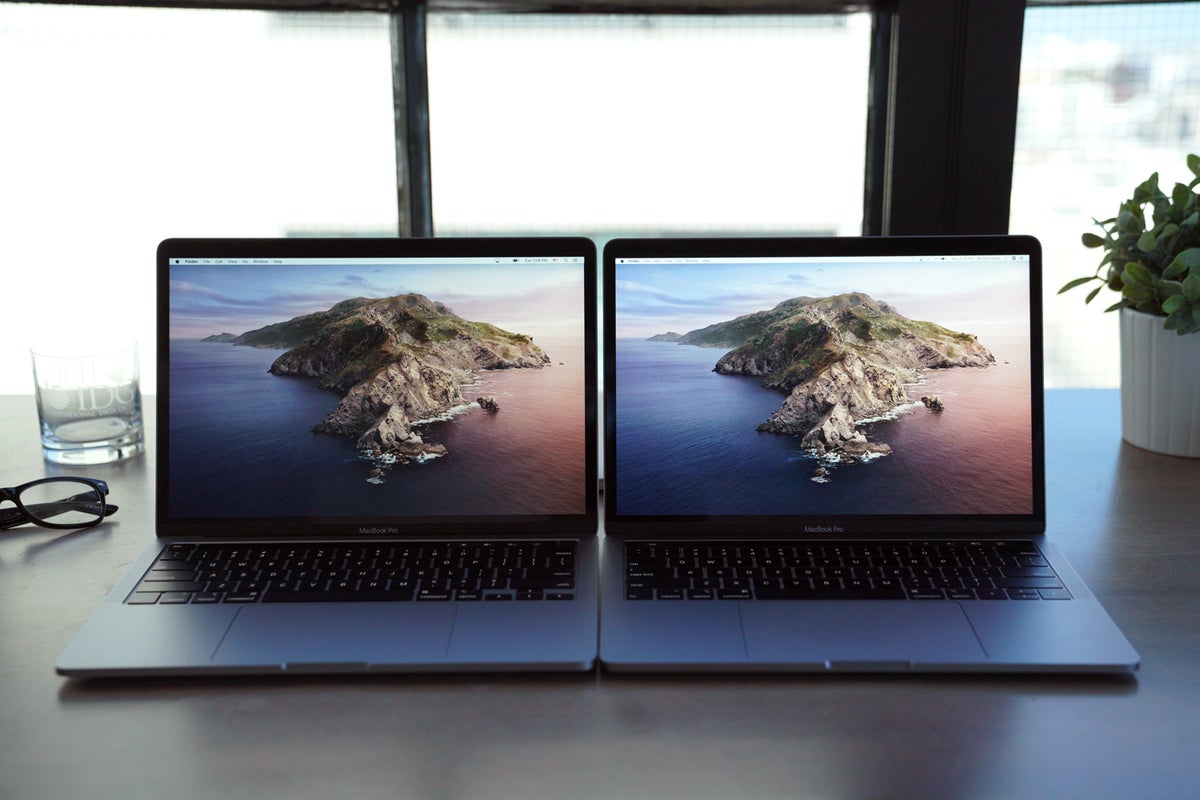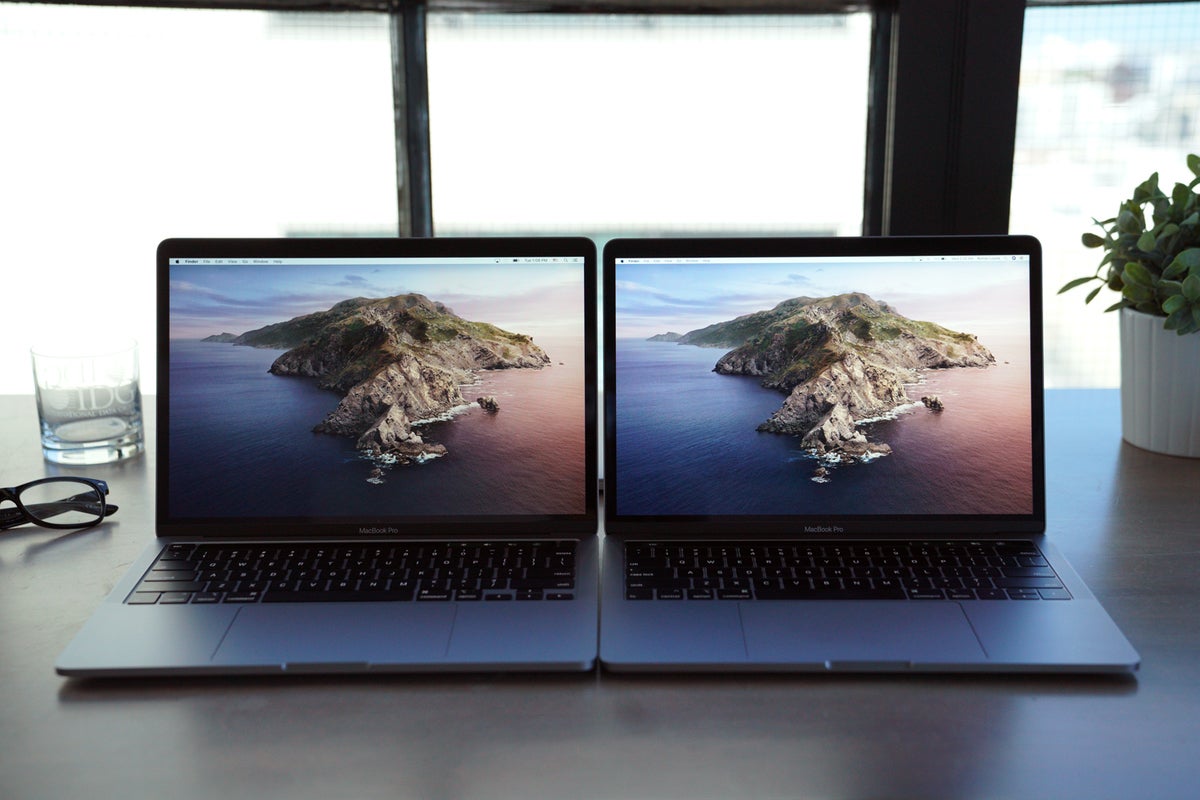
Apple sold a lot of corporate notebooks as enterprises kitted out newly remote workers with new Macs during the second quarter, new data shows. Indeed, notebook sales across the board raised all the boats in the PC industry as the coronavirus pandemic pushed workers out of the office and into their homes.
Notebooks ‘singlehandedly’ save the PC market
“Notebooks have singlehandedly pulled the PC market out of depression,” said Rushabh Doshi, research director at Canalys, in a statement. “They have been crucial in ensuring that the service, government and education sectors can continue to function in the face of unprecedented disruption and uncertainty.”
Canalys estimates PC sales will be 9% higher year-over-year in Q2 2020, representing the biggest rise in shipments since Q3 2010. It was all in notebooks: the data suggests shipments of these climbed 24%, while desktop sales fell 26%.
More specifically, Apple shipments climbed 13.1% to reach 5.35 million units; HP saw 17.5% gains (18 million units); and Acer saw 21% growth.
Others saw increases in the single figures.
The analysts note multiple regional differences, which reflect the severity and response to the COVID-19 outbreak that continues to spread across our world.
You can learn more about the data here.
Parsing this information, it’s important to remember that Chromebooks are included in the notebook category, as are the Surface Laptop and Surface Studio.
Microsoft’s Surface and Apple’s iPads are not included, however, which means those enterprises that invested in Apple tablets to equip remote work employees aren’t being picked up in these figures. With this in mind, it is notable that Apple continues to exceed average PC industry growth.
Cloud services of various kinds are also underpinning the response to the disaster, with spending rising 34% in Q1, Canalys has previously said.
Time to ignite interest
Within context, Apple’s decision to migrate Macs to Apple Silicon comes at an interesting time. Not only does the move attract a little more interest in the company’s products, but the very fact that these future Macs will be capable of running iPad and iPhone apps natively should surely be of interest to enterprise purchasers.
Why?
Put simply, Apple’s mobile products already dominate the enterprise.
iPhones are enterprise-class devices, and Apple’s decision to purchase Fleetsmith and the upcoming Jamf IPO show that the time is now for Apple’s enterprise deployments. This is, of course, good news for all players in that space.
Firms across the Fortune 500 already provide iPhone and iPad apps to employees for multiple tasks. The fact that it will soon be possible to run those apps on Macs means Apple will be offering what could be seen as the most flexible platform choices around.
That’s assuming these Apple Silicon devices match muster.
Appl eSilicon notebooks are coming
A recent report from Apple analyst Ming-Chi Kuo claims the company plans to introduce the first Macs based on these chips by the end of the year.
That’s what Apple has previously promised; what’s new is the analyst’s claim that the first such device will be a 13.3-in. MacBook Pro, with an Apple chip also running inside a future version of the MacBook Air.
He also predicts new mini-LED MacBook Pros with an all new design next year.
It makes sense that Apple will begin exploring a new design language for its next- generation platforms.
What’s important, at least from an enterprise perspective, is that these new Macs will still be Macs, and should be capable (we’re told) of running the same apps most businesses already rely on. Those that won’t run natively on the chips (which should be most of them) should remain usable thanks to Rosetta 2.
Not only this, but enterprises that need Macs running Intel chips will still be able to get them – at least for a couple of years.
Remote working is the new normal
While attempts are being made to resurrect economic activity in some markets, lessons from others show that doing so too early creates the risk of a second COVID-19 spike.
Apple has already learned this. Having opened most of its U.S. stores over the last few weeks, it has since been forced to close dozens of them in response to local outbreaks.
Indeed, tracking which stores are open and which ones shut is becoming a relatively solid way of evaluating risk levels in communities, particularly in places where such information is not transparently shared.
The significance can’t be downplayed. The virus continues to threaten our way of life, and that means the move to remote working will inevitably continue.
Yes, there will be some companies that resist this direction. But in the absence of any solution to the challenge, they’ll find it increasingly difficult to recruit and retain employees who simply want to protect themselves and their families.
This trend should translate into solid demand for notebooks and mobile devices. And at this point there is only one firm that sits in a leadership position in that space. If it impresses with Apple Silicon Macs, Apple can expect to benefit from this trend.
The best hope for competitors is that the new Mac architecture fails, which seems unlikely given Apple’s track record.
Please follow me on Twitter, or join me in the AppleHolic’s bar & grill and Apple Discussions groups on MeWe.



